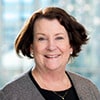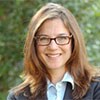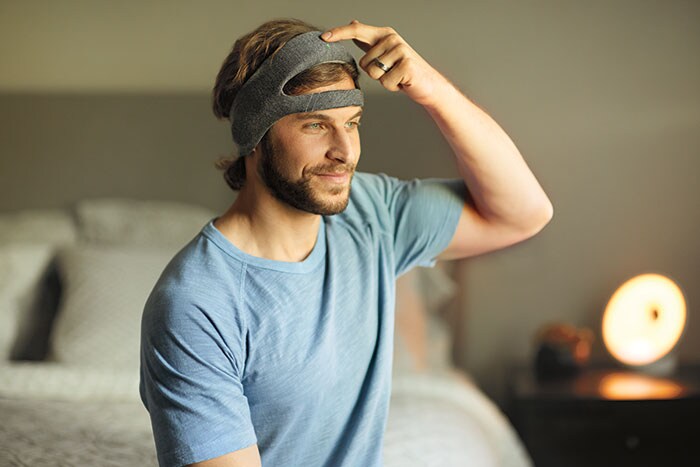Jun 17, 2019
Philips SmartSleep Deep Sleep Headband selected by NASA-funded institute for studies to improve sleep and behavioral health
Amsterdam, the Netherlands – Royal Philips (NYSE: PHG, AEX: PHIA), a global leader in health technology, today announced the company’s SmartSleep Deep Sleep Headband will be used in research funded by the Translational Research Institute for Space Health (TRISH), a virtual institute empowered by the NASA Human Research Program, for two unprecedented studies evaluating the relationship between sleep and cognitive performance for behavioral health. The two-year initiative will use the Deep Sleep Headband to determine if sleep can be improved during deep space exploration by utilizing a variety of auditory stimulation protocols, thereby maximizing cognitive function. Philips’ technology is the first-of-its-kind to be used in this type of research.
Deeper understanding of the connection between sleep and cognitive performance builds on the decades of clinically-guided research that drive our sleep solutions, and will contribute to future Philips innovations making better sleep and its benefits accessible to everyone.
John Frank
Business Leader, Sleep and Respiratory Care at Philips
“We’re honored to have the SmartSleep Deep Sleep Headband selected for these studies that will be important not only for space exploration, but also for the millions of people who have difficulty obtaining adequate sleep,” said John Frank, Business Leader, Sleep and Respiratory Care at Philips. “Deeper understanding of the connection between sleep and cognitive performance builds on the decades of clinically-guided research that drive our sleep solutions, and will contribute to future Philips innovations making better sleep and its benefits accessible to everyone.” Research has demonstrated that the beneficial effects of sleep on restoring brain function occur, at least in part, during slow wave sleep, resulting in increased energy and alertness during times of wakefulness. The benefits of enhanced slow wave sleep are especially pertinent to astronauts, who must maintain peak cognitive and operational performance while working in extremely challenging sleeping environments. TRISH, in collaboration with researchers from the University of Wisconsin-Madison and the Perelman School of Medicine at the University of Pennsylvania, has begun the following studies: “At TRISH, we’re always looking for emerging technologies that can reduce risks to human health and performance – especially during deep space missions,” said Dorit Donoviel, Ph.D., director of the Translational Research Institute for Space Health. “We are interested in optimizing performance without medication and identifying solutions that can improve the efficiency and restorative quality of sleep. With Philips SmartSleep technology, we’re aiming to use a consumer-facing device for spaceflight that can evaluate the correlation between sleep and performance, and how that connects back to astronaut behavioral health.” The Deep Sleep Headband, made available for purchase in the United States on Philips.com in the fall of 2018, is the first sleep technology that is clinically proven to both enhance the quality of deep sleep through customized tones that provide a boost to an individual’s natural slow wave activity and to improve cognitive function in a number of domains during wakefulness. Philips will support TRISH’s studies by providing this technology, in addition to offering the technical expertise necessary to program the devices to deliver multiple forms of stimulation, and to extract the data assessing slow-wave sleep. Recognized as a population health issue by clinical communities worldwide, sleep deprivation affects the health and livelihood of millions of people. Using nearly 40 years of deep clinical expertise in sleep technology, Philips aims to ultimately address 80 percent of all sleep issues with its technologies. To learn more about Philips SmartSleep suite of consumer sleep solutions, including the Deep Sleep Headband, please visit www.Philips.com/SmartSleep. For additional information on Philips’ solutions for sleep and respiratory care, follow @PhilipsResp on Twitter or visit www.philips.com.
About Royal Philips
Royal Philips (NYSE: PHG, AEX: PHIA) is a leading health technology company focused on improving people's health and enabling better outcomes across the health continuum from healthy living and prevention, to diagnosis, treatment and home care. Philips leverages advanced technology and deep clinical and consumer insights to deliver integrated solutions. Headquartered in the Netherlands, the company is a leader in diagnostic imaging, image-guided therapy, patient monitoring and health informatics, as well as in consumer health and home care. Philips generated 2018 sales of EUR 18.1 billion and employs approximately 77,000 employees with sales and services in more than 100 countries. News about Philips can be found at www.philips.com/newscenter.
Topics
Contacts

Kathy O'Reilly
Philips Global Press Office Tel.: +1 978-221-8919
You are about to visit a Philips global content page
Continue
Meghan Cole
Interim Global Public Relations Manager Tel.: +1 412-370-8291
Philips Sleep and Respiratory Care
You are about to visit a Philips global content page
ContinueMedia assets


